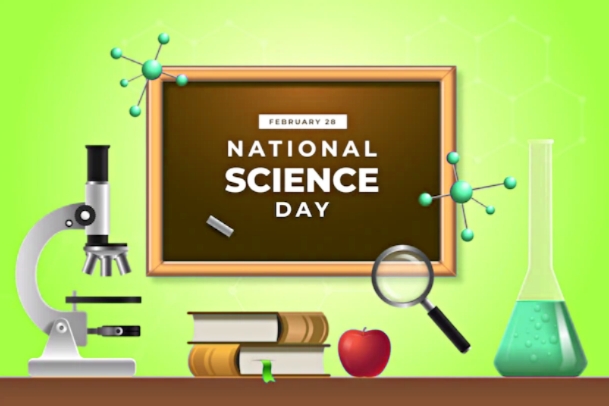
National Science Day is observed on February 28th each year in India. On February 28, 1928, Indian physicist Sir C.V. Raman discovered the Raman Effect, for which he was awarded the Nobel Prize in Physics in 1930. This discovery significantly impacted research, notably in spectroscopy and solid-state physics. The day is observed to raise awareness about the value of science and its application in daily life. It also aims to acknowledge Indian scientists' efforts and inspire young people to pursue professions in research. To commemorate the day, numerous events are held in schools, colleges, and universities throughout India, including science exhibitions, discussions, and quizzes.
National Science Day 2023: Theme
The topic for National Science Day 2023 is Global Science for Global Wellbeing, announced by Union Minister Dr. Jitendra Singh.
National Science Day: History
In India, National Science Day is observed on February 28th each year to commemorate the 1928 discovery of the Raman effect by Indian physicist Sir Chandrasekhara Venkata Raman. In 1986, the National Council for Science and Technology Communication (NCSTC) requested that the Government of India declare February 28 as National Science Day. The government recognized the day and designated it National Science Day. On February 28, 1987, the first National Science Day was observed.
The Raman effect is the inelastic scattering of a photon that results in a change in light wavelength. This discovery significantly impacted research, notably in spectroscopy and solid-state physics. The purpose of the day is to create awareness about the importance of science and how it may be applied in everyday life, as well as to acknowledge the accomplishments of Indian scientists.
National Science Day: Significance
Some of the key significance of this day include:
1. Recognizing Indian scientists' contributions: The day is observed to honor Indian scientists, particularly Sir Chandrasekhara Venkata Raman, who received the Nobel Prize in Physics in 1930 for discovering the Raman effect.
2. Promoting scientific literacy: National Science Day seeks to increase scientific literacy among the general public, particularly young people, by encouraging them to pursue jobs in science-related fields.
3. Encourage scientific research: The day is also used to promote scientific research in India by promoting the most recent scientific advances and emphasizing the efforts of Indian scientists.
4. Spreading scientific awareness: The purpose of the day is to raise awareness about the relevance of science in everyday life and how it can be used to solve issues and enhance people's lives.
5. Inspiring future scientists: By emphasizing the achievements of Indian scientists and encouraging young people to pursue professions in research, National Science Day serves as an inspiration for future scientists.
Facts about CV Raman and National Science Day
1. CV Raman was a physicist from India who won the Nobel Prize in Physics in 1930 for discovering the Raman phenomenon. He made this discovery on February 28, 1928, and every year on that date, National Science Day is observed to recognize his achievement.
2. Raman was the first Asian and non-white individual to be awarded the Nobel Prize in physics.
3. Raman was also a pioneer in the science of acoustics, making numerous important contributions to the knowledge of sound wave properties.
4. The Raman effect is the inelastic scattering of a photon that results in a change in light wavelength. This phenomenon is common in several scientific domains, including spectroscopy, solid-state physics
5. Many organizations and institutes, both public and private, hold competitions and award ceremonies to recognize remarkable accomplishments in the field of science.
6. Raman also founded the Indian Journal of Physics and the Indian Academy of Sciences, both of which are located in Bangalore.
7. He was also the first Indian scientist to be awarded the Bharat Ratna, India's highest civilian honor.










No comments:
Post a Comment
please do not enter any spam link in coment box